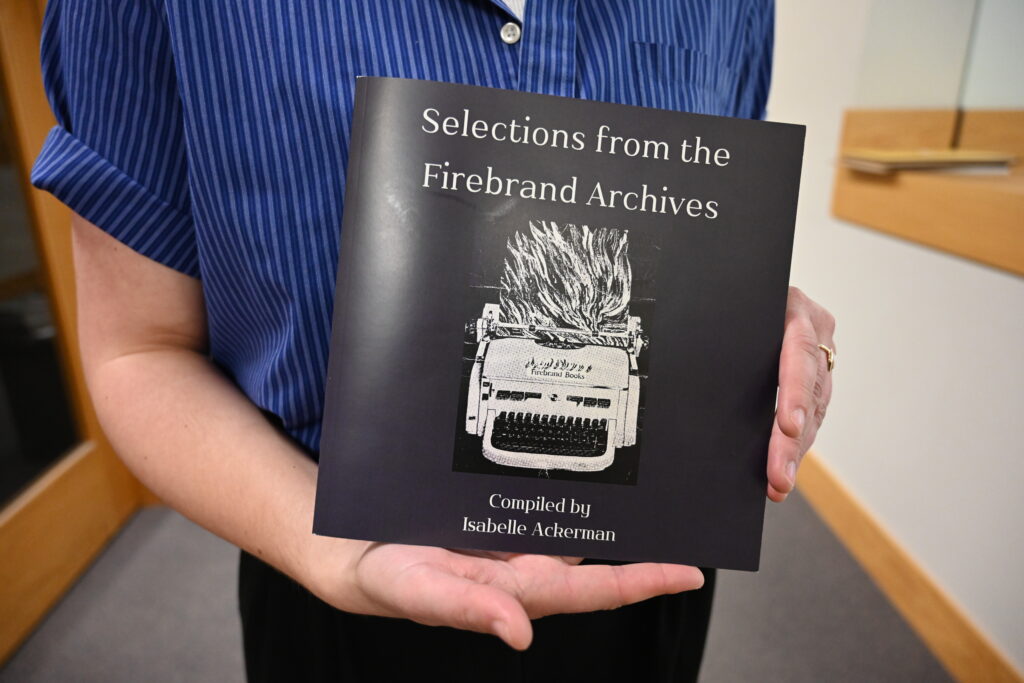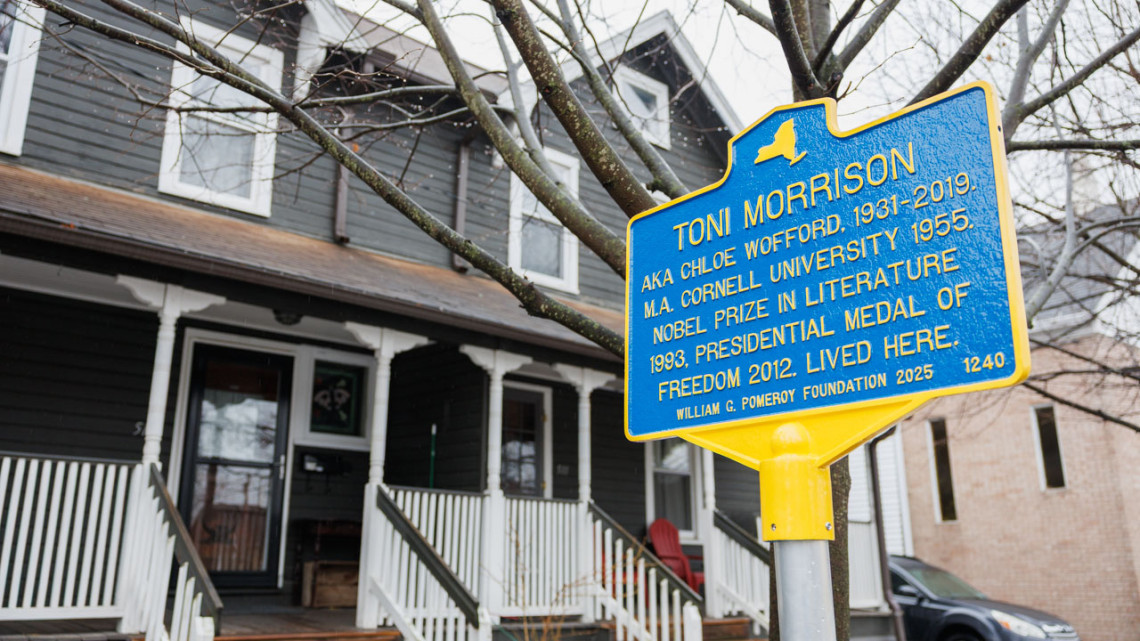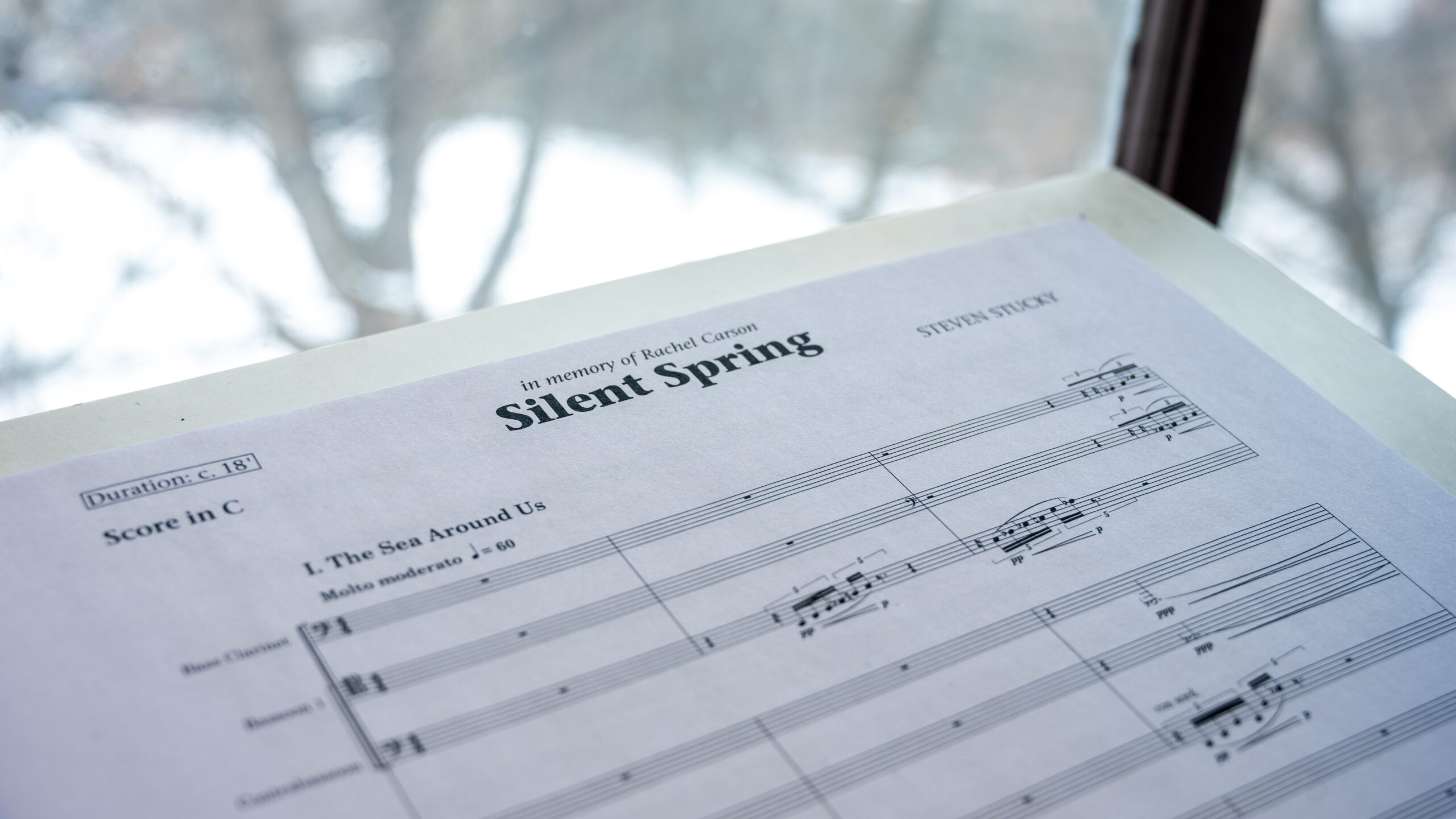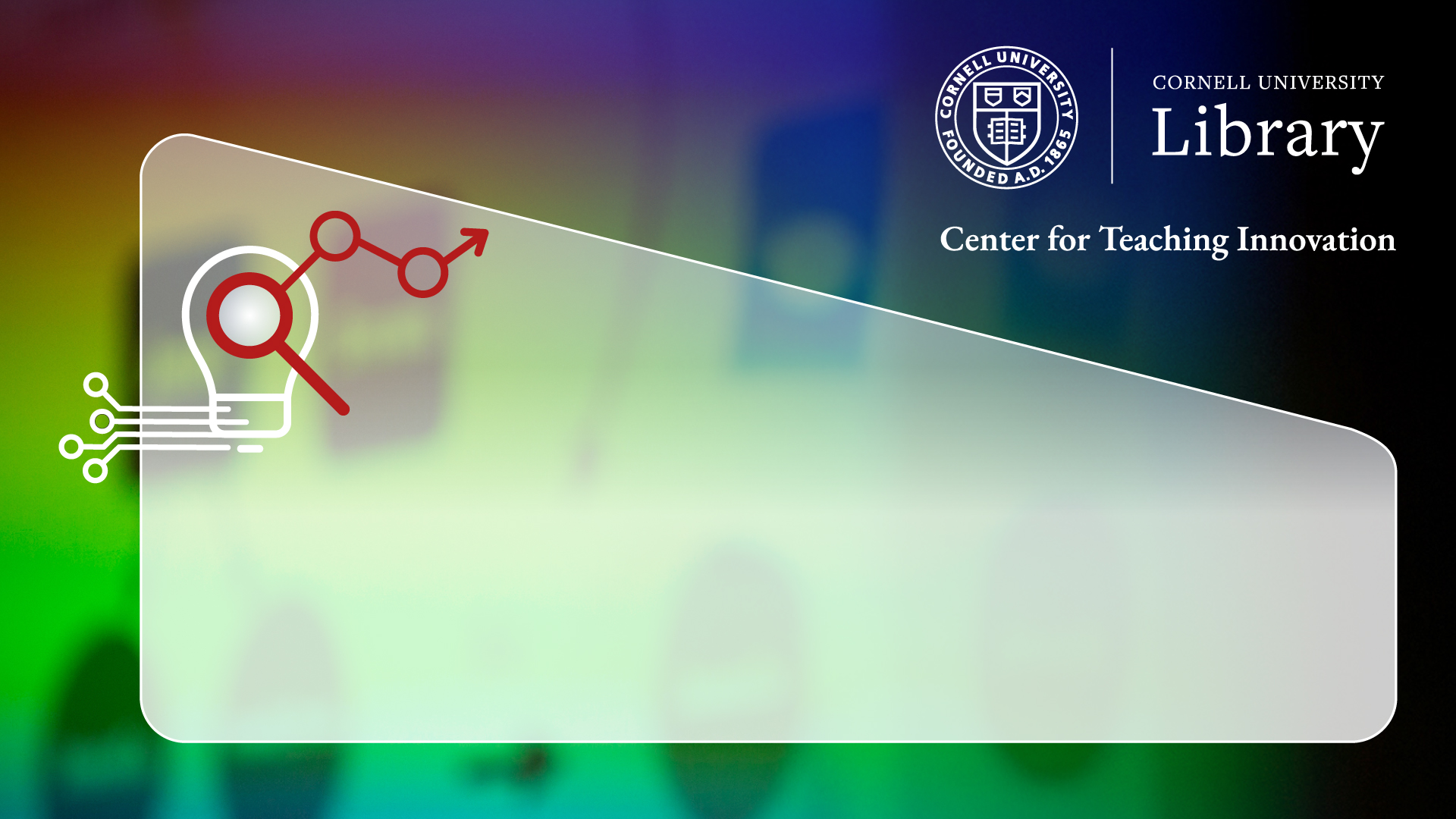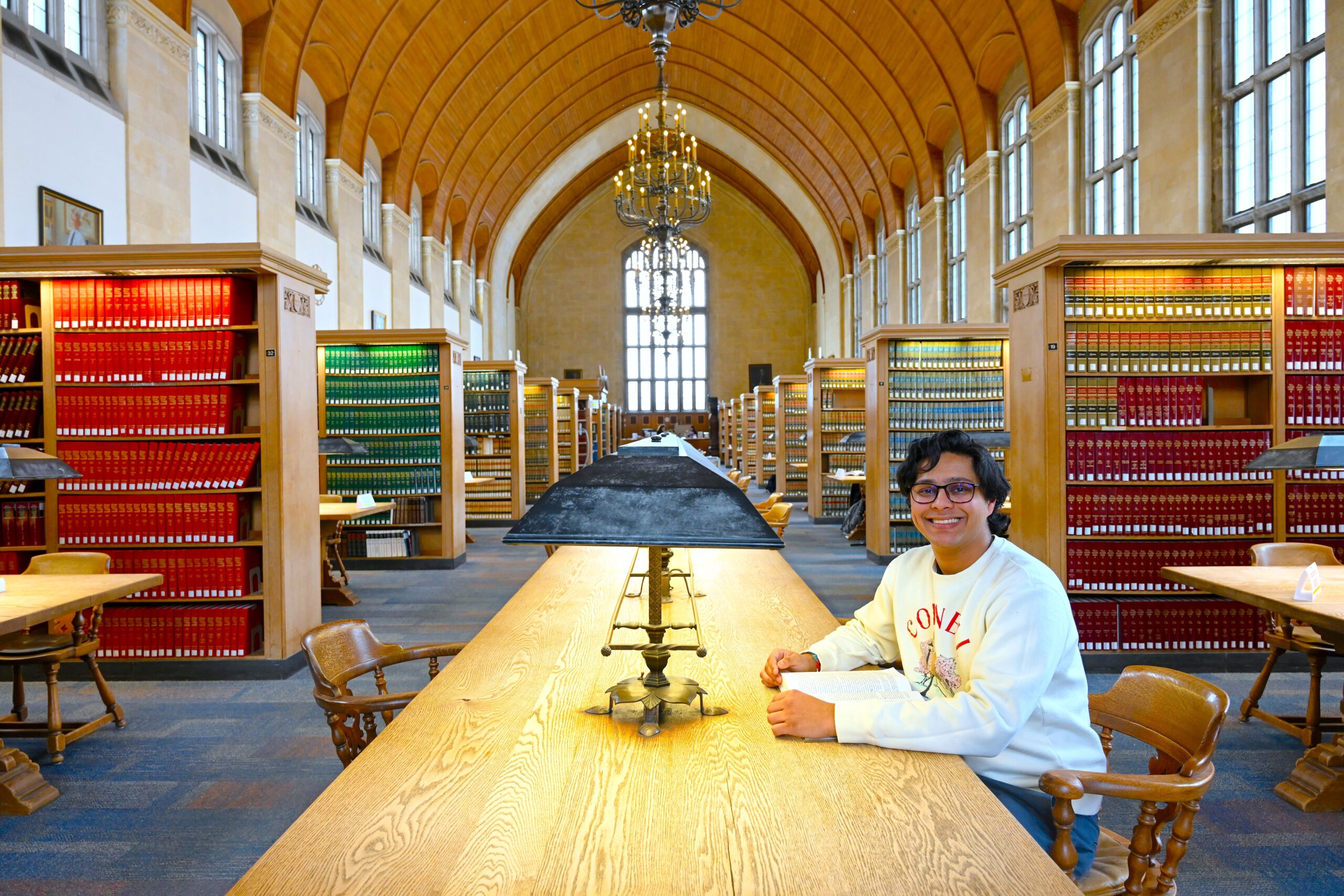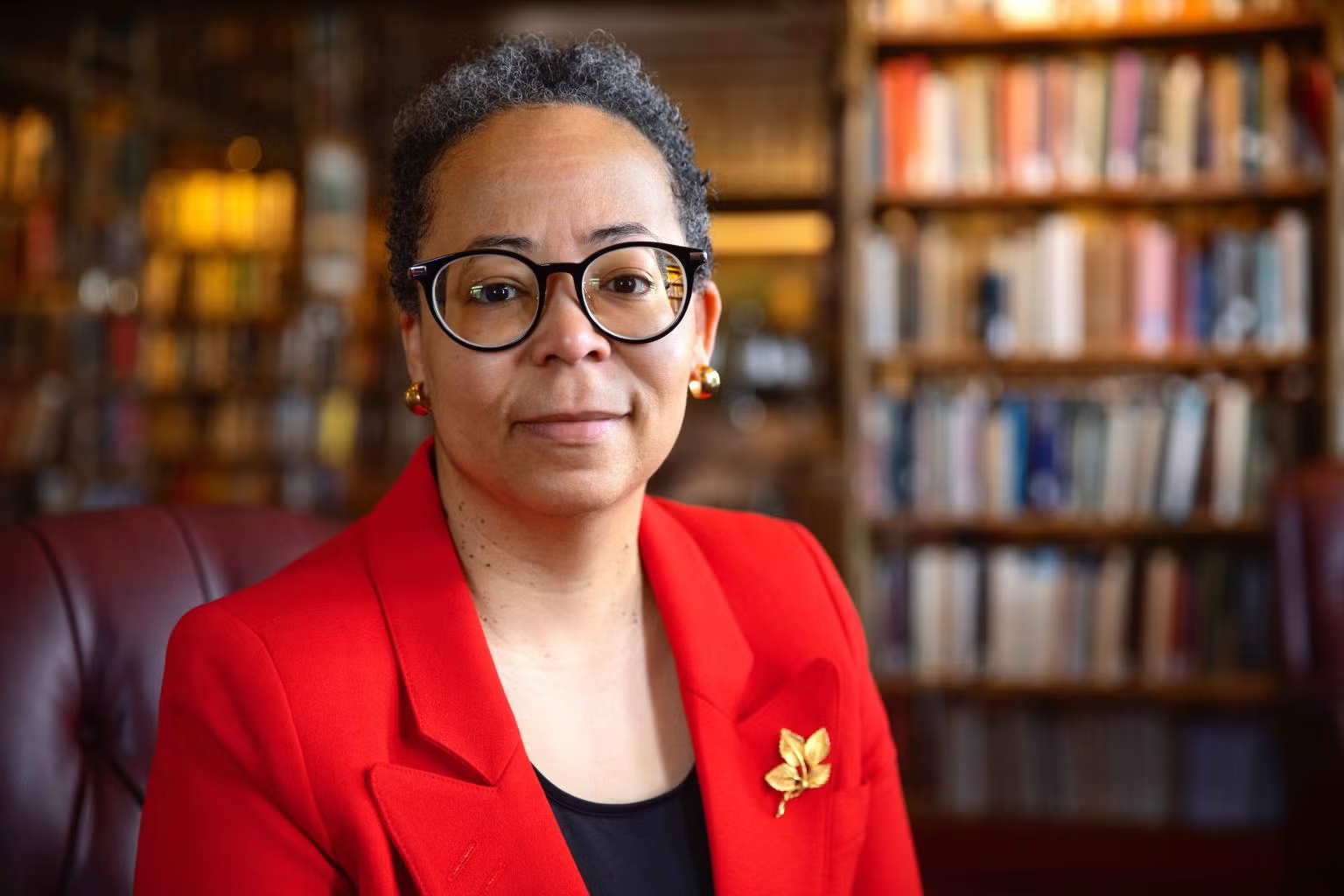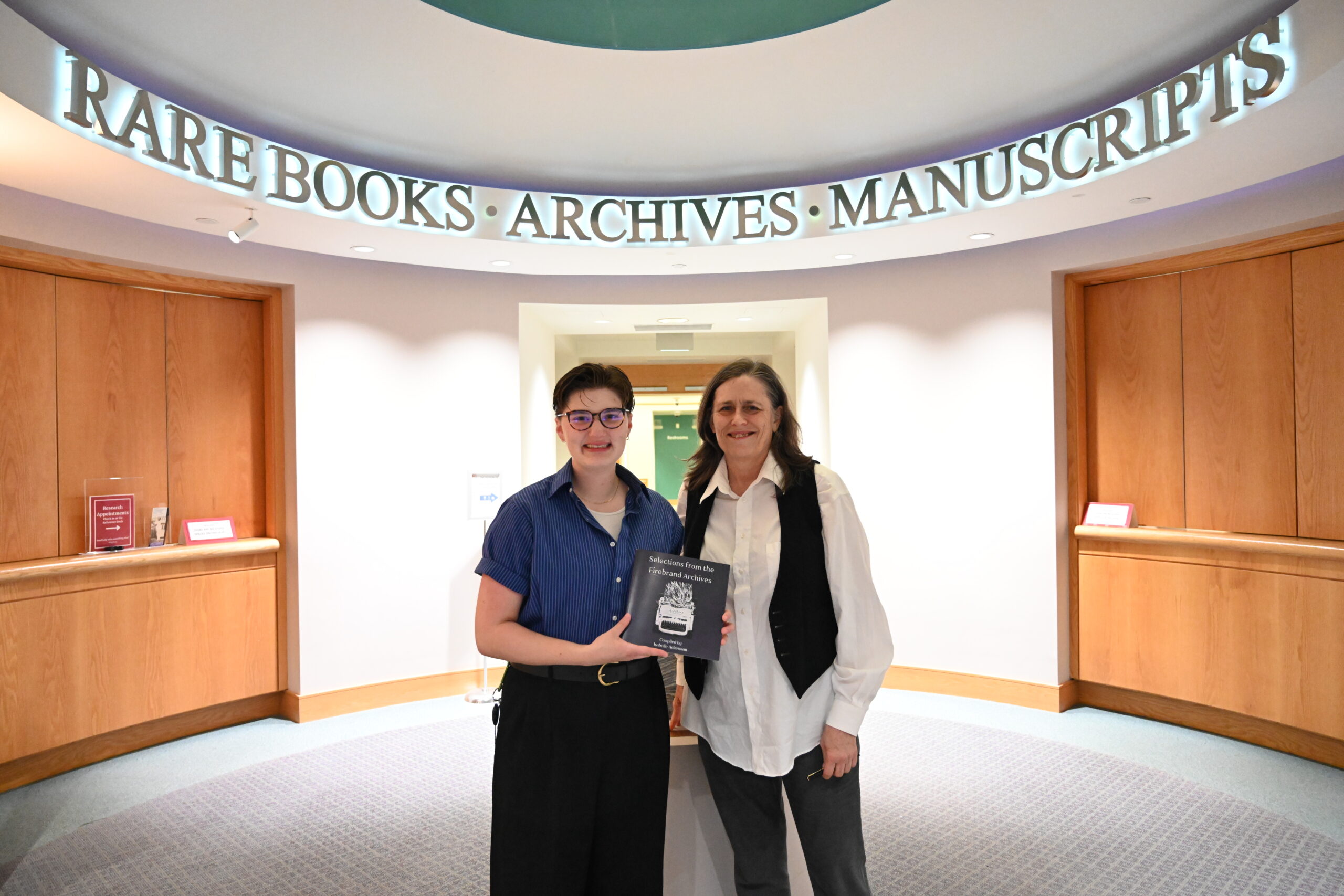
The Firebrand Books archives at Cornell University Library have been drawing scholars from far and wide who are interested in learning more about the history of the trailblazing publisher of queer and lesbian literature. Last spring semester, Firebrand’s archives attracted students and professors at nearby Ithaca College and sparked their teaching and research collaboration with Brenda Marston, the curator of the Cornell Human Sexuality Collection in the library’s Rare and Manuscript Collections (RMC).
“Having my Queer Lit students research Firebrand authors and texts was a wonderful way for them to discover and pay tribute to Firebrand as a vital queer and feminist press, with rich connections to Ithaca,” said Jennifer Spitzer, associate professor of Literatures in English at Ithaca College. “While most of my students used a chosen text and online resources (academic articles, book reviews, and author interviews) for research, roughly ten of my students ventured over to Cornell University Library and the Firebrand archives for additional research.”
Books published by Firebrand—along with its business records and the correspondence of its founder Nancy K. Bereano who donated the archives to the library in 2000—are especially relevant today, according to Spitzer.
“Given that book bans and book challenges have accelerated at an alarming rate over the last five years, and that the majority of the texts that are challenged are by LGTBQ+ and BIPOC authors, it feels especially timely and meaningful for my students and me to discover and honor an independent lesbian feminist press, and one that helped establish and publish some of the most important and relevant queer voices, including Alison Bechdel, Audre Lorde, Leslie Feinberg and Dorothy Alison,” Spitzer said. “So much of queer literary history has been subject to censorship or selective representation and gatekeeping, so to have access to this rich and capacious archive of queer women creators, and their writings and correspondence, feels like a gift.”
In order to avoid scheduling conflicts with the large of group of students’ other classes, Marston conducted real-time virtual presentations about the Firebrand archives. She and RMC staff then facilitated in-person visits for group project leaders outside of their class time.
“I’m glad that we were able to come up with a solution that allowed Ithaca College students to take advantage of this archive that directly dovetailed with what they were studying,” Marston said. “Finding a way for them to engage with this archive helped bring their course reading alive for them.”
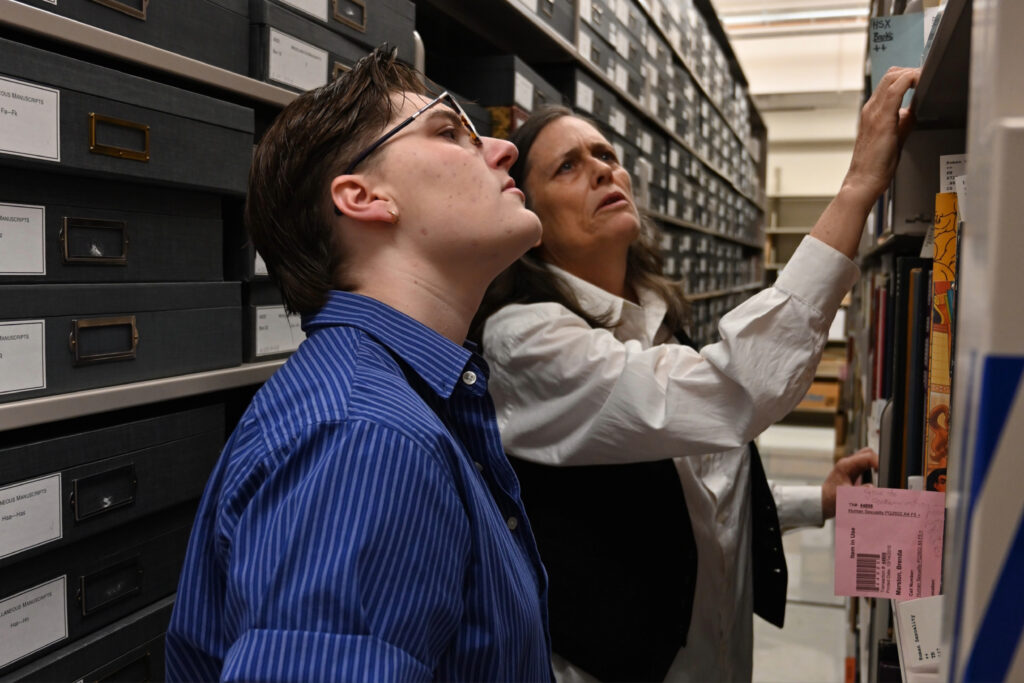
Isabelle Ackerman—a graduating art history major with a minor in theater studies at Ithaca College—said her visits to RMC were immersive and transformative.
“I was at RMC for almost six hours every week since October—on good days and bad days, no matter what, I was in the reading room. That meant I brought all of my humanity in with me when I opened up the boxes,” she said.
Ackerman said that she connected with the archives on a personal level.
“One of the most poignant moments was when I read a request letter from a woman from South Carolina looking to start a lesbian culture center and library,” Ackerman said. “She had written with such passion about how books provided sanctuary and relief from shame.”
“In my own coming out—which was deeply colored by my research journey on this project — I have looked to books for answers and a place to understand myself, too,” Ackerman said. “That feeling of kinship across time with other queer women has come to define what Firebrand has meant to me.”
As part of their final projects, students in the Queer Lit class presented their research projects at the “Pippi to Ripley: Gender and Sexuality in Popular Culture” conference on April 18–19 at Ithaca College, which was organized by Katharine Kittredge, a professor of Literatures in English.
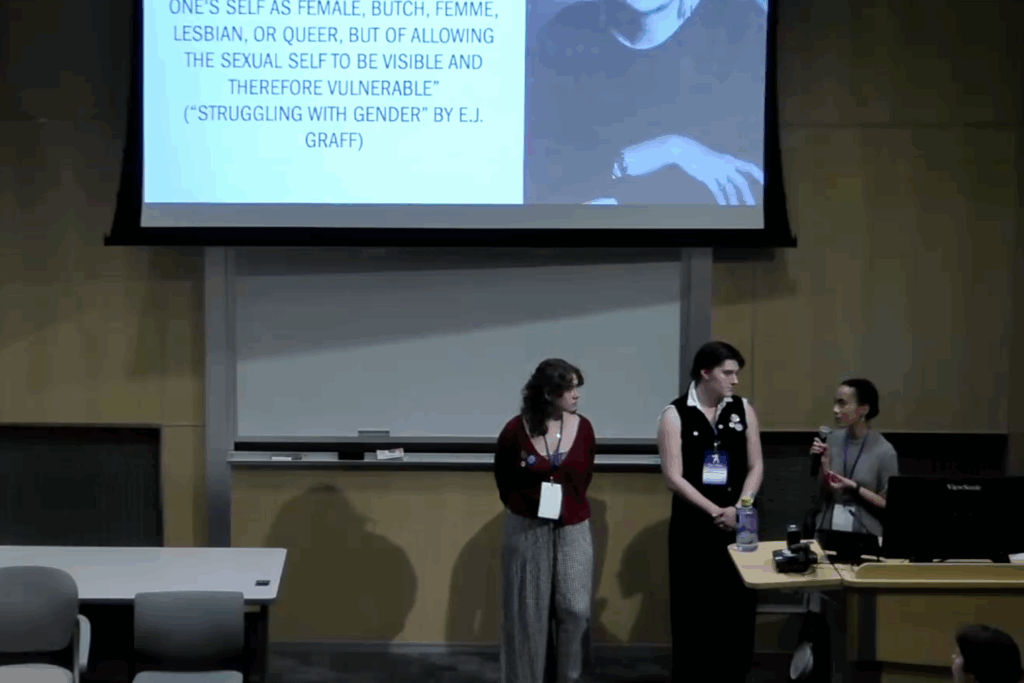
Held every other year since 2011, the conference explores topics related to gender and sexuality in sources ranging from canonical English literature to comics and video games. This year, Kittredge wanted to highlight Firebrand Books, and she partnered with Spitzer’s Queer Lit class to showcase student scholarship.
Kittredge has been an avid reader of publications by Firebrand, and they have been a staple of her teaching. “Firebrand books have been on my shelf for years, and they have absolutely changed my students’ lives and their perceptions of queer history,” she said.
Researching historical Firebrand materials and participating in the conference was eye-opening for Riley Rhoder, an English major at Ithaca College who will be entering a dual master’s in library science and English literature program after her graduation in May this year.
“I think it’s crucial, especially for publishers like Firebrand books—who were publishing queer texts and texts from people of color and of intersecting marginalized identities—to preserve that history,” Rhoder said.
At the conference, Marston partnered on a presentation with Ackerman about archival research, and she praised Ackerman’s project of creating a print catalog of select materials from the Firebrand Books archives.
“What she created from her time in the archives was really beautiful and significant, and I’m going to be adding her catalogue to our collection,” Marston said.
